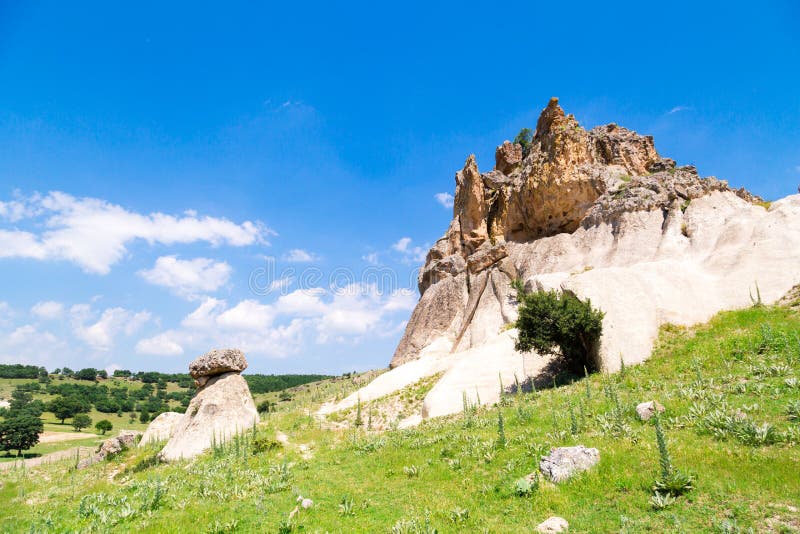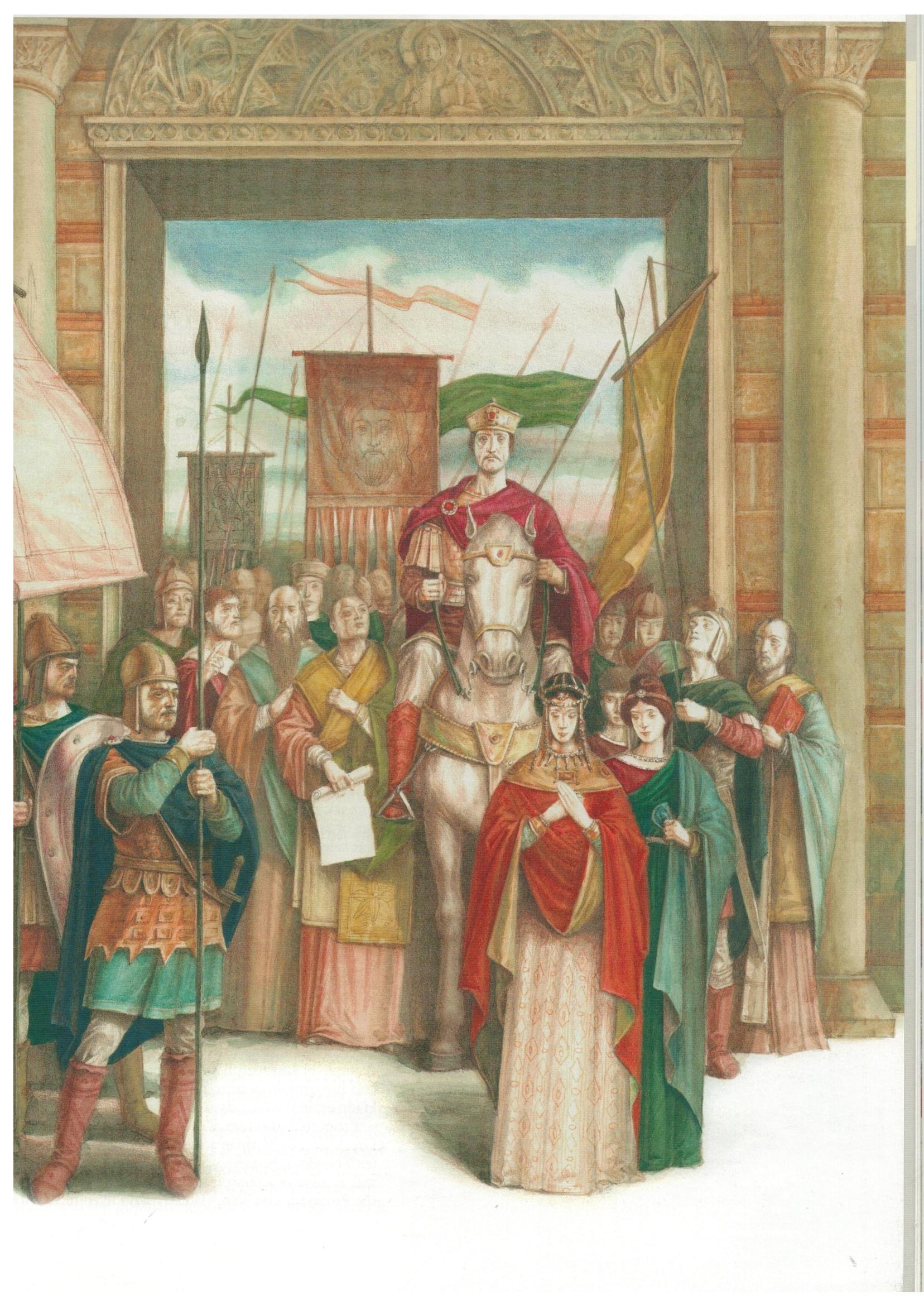Basil II: 976 - 1025
Porphrogennetos
The Romans and the New World

The Romans and the New World

On the eighth of January, 976. Emperor John I Tzimiskes, scion of a distinguished family and himself a distinguished emperor, woke up in the cold winter morning of Phrygia. The emperor arose to find he had slept in a poor position, warranting pain as he arose from his bed, he ate breakfast and put on his suit of armour as his nephew-in-law, adopted son and heir, Basil, wiped his spear. He rode out on his horse across the rows of tents and makeshift campfires to the tent of Basil Lekapenos, his chamberlain and the illegitimate son of emperor Romanos I Lekapenos. The emperor found Basil and his guards signaled to the eunuch, Lekapenos rose and greeted the emperor. Tzimiskes dismounted and his chamberlain bowed.
"I would believe we can reach Nicaea in four days", said the emperor, pointing to the gleaming walls of Ancyra in the horizon, almost blinding him as he glanced. "We could do three if we rush", said Lekapenos as he squinted, "But four days would be satisfactory, we'd want to stop, won't we?". The eunuch turned to face the emperor to find him in a deathly pallor, the Emperor called for his guards, "Niketas...", he weakly muttered before collapsing over his horse. Seven guards rushed towards the emperor, he vomited over the ground and a priest was called in. The soldiers all came around to spectate and news would soon reach Constantinople.
8th January 976, Ancyra, Basileia Rhomaion
"If he wasn't dying already, all of this incense will", thought Basil as he in vain attempted to lighten up. The emperor was in the largest basilica in Ancyra, lying mostly asleep, but sometimes stirring, talking to his wife for a few seconds before weakly vomiting and sleeping again. Antonios Studites, the Ecumenial Patriarch of Constantinople, had arrived on his mule to Ancyra before even the whole city knew about it and was circling the dying emperor while swinging incense in a small golden goblet chanting hymns. A soldier walked into the ceremony and started crying, wailing even, he clutched his casket and turned to Tzimiskes. The emperor woke up, he was in a dazed state, "wh... who are you?", said emperor, "a soldier of the Empire", replied the soldier, the emperor asked, "will I be remembered as a good emperor", "Yes, Yes!", shouted the man through his tears, clearly startling the Patriarch. The emperor, whose ceremonial loros was wrapped in cloth as not to be stained by his vomit, lapsed back into his sleep. As the soldier knelt and cried before Tzimiskes. Basil held back tears, although his father died when he was five, it was Tzimiskes who had the closest relation as heir, Basil had been the next-in-line but the throne was squabbled upon by generals as a child, who usually left the young Basil to his own devices as his mother plotted and courted senior figures, when Basil was 11, John I Tzimiskes came to the throne and proved to be a beloved de facto stepfather by campaigning with him - Basil was a child of the campaign and was more like a peasant in his personality, he detested the nobility and ceremonial traditions and was boorish and loved warfare. Now the 18-year-old Basil would soon rise to the throne and contend as the nobility that knew of his dislike for them would try to overthrow him. Basil stared up at a mosaic of Christ Pantocrator, assembled during the triumph of Orthodoxy over a century prior. He turned and asked Theodora, the distraught empress, whether he would survive or not, "God wills it", the empress replied. The sun set down and the procession continued late into the night, as the sun went up the next morning, Emperor John I Tzimiskes stirred and slept, and never stirred again. Basil was now the emperor.
-
Basil arrived quickly to Constantinople and was coronated as Basil II. Contrary to expectations, his reign started off peacefully, Basil II spent most of his time in the Imperial Library, reading the classics and studying every Roman emperor before him in his transformation to statesmanship. Basil Lekapenos, John's chamberlain, held real authority, Lekapenos was a skilled politician who briefly revived the extant Senate and sought to hold power behind the throne, expecting Basil to be the sword of the empire and himself to be the ruler. The situation at the court of Constantinople had declined in recent years, the Empire was ruled by military strongmen who proved inefficient of handling the court and thus it detached itself from the throne. Basil observed Lekapenos control the state and planned his purge. Outside studying, Basil continued his life of hunting and sport. Lekapenos began to suffer from accusations of poisoning John I Tzimiskes as the former emperor had condemned the Byzantine elite prior to his sudden illness while Lekapenos held large estates.
-
23rd March 977, Constantinople, Basileia Rhomaion
The race was close, but Bardas Rangabe of the Greens seemed to be winning, on the right-side of the Hippodrome, beneath the box of Emperor Basil II, Andronikos Diogenos of the Blues rose from third place to a near lead, Rangabe strained forwards to overtake the charioteer but one of his horses struck Diogenos'. Diogenos paused his horses, believing someone behind him had an accident when Rangabe, who's horses darted leftwards, crashed at 45 miles per hour into Diogenos. The blue charioteer's basket1 skidded over the sand and the green basket of Rangabe flipped and was destroyed, several spectators had to duck as Rangabe's empty basket collided with the stands, leaving nobody harmed but the ancient barriers damaged. The other charioteers stalled in time. Basil, as most emperors would have, descended to assess to damage and aid the charioteers, Andronikos Diogenos was largely unharmed having landed from a small height onto the ground but Rangabe was in a worse state, the collision threw his basket to the ground and he was injured, having broken multiple bones and covered in blood, Rangabe survived but retired from charioteering. Seven of the horses died in the crash. After both charioteers were pulled from the wreckage by monks and transported to hospital, Basil II announced that the game end, he returned to his imperial box to find a young woman, slightly older than him, sitting beside his entourage. Her name was Theophanu Skleraina, she was the granddaughter of the cousin of Nikephoros II Phokas, an esteemed late emperor who Basil campaigned with as a small child. She was two years older than the emperor and was seated at the front with her parents when Rangabe's empty chariot basket struck, although the hard stone walls shielded her, pieces of wood, dust and sand had landed upon her and had fallen as the crowd rushed as the chariot flipped through the air towards them, the sight of such an esteemed noble covered in sand and fallen over was an embarrassment, so she had entered the imperial box to recuperate. Basil could recognise her name, but was unable to summon where, as it turned out, in 972 she proposed to Otto II, the emperor of the Holy Roman Empire, an illegitimate barbarian state deep into Europe, but was rejected in favour of Anna Porphrogennita, a 9-year old, causing outrage and Anna's mother, Theophano, refused the offer and insulted Otto.
Basil took a tremendous liking to her and offered that she go back to the Palace, which she accepted, and after a two hour "date" with Theophanu's mother present, Basil proposed a marriage, which was accepted.
10th April 977, Constantinople, Basileia Rhomaion

An entourage of guards stood, casted over by shadows, towards the entrance of the Hagia Sophia, they blared their trumpets, the guests - who consisted of christianised Slavs, nobles, family members and Latin dignitaries dressed in white entered on a purple carpet and filled up the pews, with the hetaireia sitting in the remaining seats. Theophanu waited at the altar as the emperor, surrounded by musicians and guards, walked over to the bride, where she unveiled her face. After hymns and a procession by Patriarch Antonios Studites, they paraded up and down the mese running through the city and held two hours of games at the Hippodrome until night, which appeased the Constantinopolitans who were disappointed at the cancellation of the last games following the crash. As night fell, the dignitaries stayed up until after midnight enjoying a meal in the hall of the Great Palace, soon everyone present was calmed by the festivities and the alcohol present, except Studites, who declined alcohol and stood out, "God bless this marriage, God bless our Roman Empire!" shouted the Patriarch as he raised his cup of water into the air, "we are at a turning point", the Patriarch continued, "these two pious individuals have come together today and we will see a revival with the emperor Basil on the throne, Rome will return to its glories", his speech made slight applause, Basil smiled with half of his face, he was biting his cheek, he had sex with Theophanu the night before the wedding, during the changing of the guards when nobody was present, if the Patriarch knew, he would never have allowed this marriage and might have conspired to put a Phokas, Skleros or Lekapenos on the throne instead. Next morning, Theophanu told her husband while eating breakfast what to name her unborn child if it was a boy, they agreed to John, after John II Tzimiskes, who raised Basil and was a family friend to Theophanu.
13th January 978, Constantinople, Basileia Rhomaion
The attention of the court was to the purple chamber of the Great Palace, Theophanu had gave birth, a boy, Ioannes Porphyrogennetos. The birth of the new prince and especially it's birth in the chamber was very special for the empire. And a crowd had formed outside the gates of the Palace of Boukoleon to observe the baby, and it's birth was marked by a special mass in the Hagia Sophia and games in the Hippodrome. John Porphyrogennetos was baptised and returned back to the palace.
